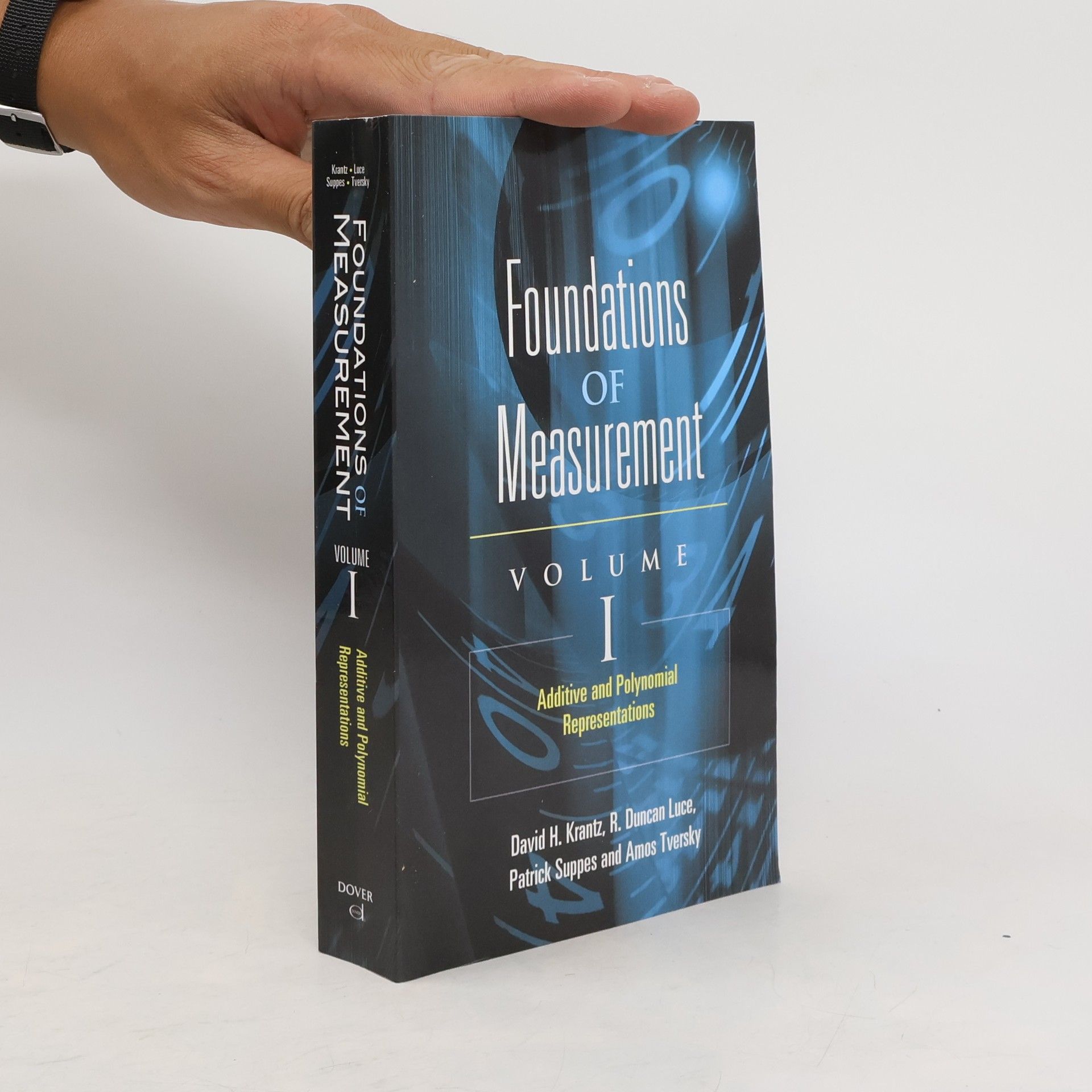Third volume in the three books Foundations of Measurement series.Table of ContentsPreface Acknowledgments 1. Overview2. Nonadditive representations3. Scale types4. Axiomatization5. Invariance and meaningfulnessReferences
Foundations of MeasurementSeries
This seminal series delves into the foundational principles and mathematical frameworks essential for quantifying qualitative phenomena. It offers a coherent and organized treatment of measurement theory, consolidating decades of scattered research across various disciplines. Exploring the development from basic numerical representations to advanced concepts like axiomatization and invariance, it provides a rigorous exploration of how we formally capture and understand the world.



Recommended Reading Order
First volume in the three books Foundations of Measurement series.Table of contents:Preface1. Introduction2. Construction of numerical functions3. Extensive measurement4. Difference measurement5. Probability representations6. Additive conjoint measurement7. Polynomial conjoint measurement8. Conditional expected utility9. Measurement inequalities10. Dimensional analysis and numerical lawsAnswers and hints to selected exercisesReferences
Foundations of Measurement Volume II
Geometrical, Threshold, and Probabilistic Representations
- 512 pages
- 18 hours of reading
A classic series in the field of quantitative measurement, Volume I introduces the distinct mathematical results that serve to formulate numerical representations of qualitative structures. Volume II extends the subject in the direction of geometrical, threshold, and probabilistic representations, and Volume III examines representation as expressed in axiomatization and invariance. 1989 edition.